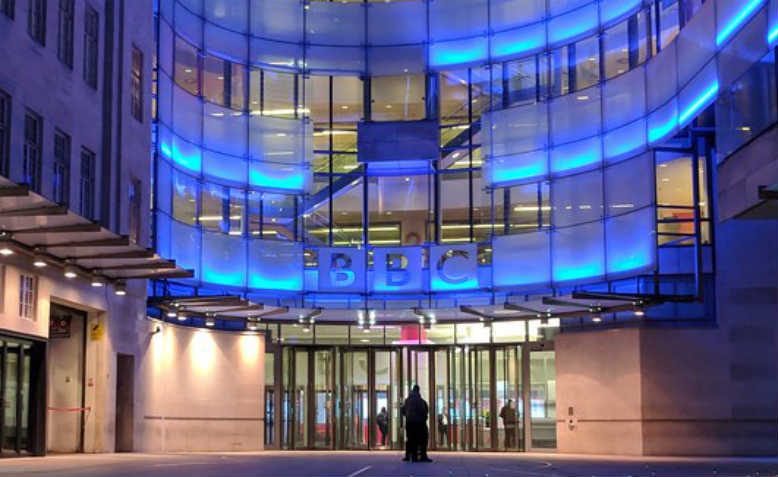 BBC Broadcasting House. Photo: Flickr/James Cridland
BBC Broadcasting House. Photo: Flickr/James Cridland
The BBC’s overt political bias against Jeremy Corbyn should cause us to question what public service it’s really providing, writes Morgan Daniels
The past few weeks have offered cause to reconsider a well-worn question, namely the political bias of the BBC.
Twice now in the current general election period, the broadcaster has ‘accidentally’ edited footage so as to improve the image of Boris Johnson. On Tuesday, meanwhile, it offered wall-to-wall coverage of some unsupported allegations of antisemitism in the Labour Party by the Prime Minister’s friend, Chief Rabbi Mirvis. This day of smears culminated with Andrew Neil boorishly interviewing Jeremy Corbyn – an encounter that provided plenty of frontpage fodder for the Wednesday papers.
The BBC, then, is not so much reporting on the news as manipulating and creating it. This has been going on for as long as Corbyn has led Labour, as when Laura Kuenssberg arranged for Stephen Doughty’s resignation as a shadow minister live on Daily Politics in 2016. Can we really say that the BBC is providing us with a public service?
The centre cannot hold
In 1965, a member of the BBC secretariat recalled some off-the-record remarks made by a ‘former Prime Minister’—probably Harold Macmillan—as he was winding down after a televised interview. I like television, he said, because it’s so biased. Asked by a nervous crew in what direction this perceived bias operated, our PM-no-more replied, apparently with theatrical gesturing: ‘In all directions!’
For much of its history the BBC has been able to deflect accusations of bias precisely as above – by presenting itself as an indiscriminate offender across the political spectrum. In August 2013, for instance, the Centre for Policy Studies published a study providing conclusive proof that the BBC ‘exhibits a left-of-centre bias’, whilst a fortnight later a researcher from Cardiff University demonstrated quite the opposite—namely that the Beeb mostly gave preference to Conservative politicians and ideas.
It is true that Labour and Conservative politicians alike have always been aggravated by ‘Auntie’s’ political reporting. It is also the case that the BBC affords relatively equal airtime to spokespeople from the two main political parties. But therein is the catch: to conceive of ‘neutrality’ in these terms is to insist that the political is what takes place in Westminster. In other words, the BBC reproduces bourgeois ideas of democracy.
There is, therefore, a historically-specific component to contemporary complaints about the BBC’s bias. Until very recently it was easy enough for the BBC to frame politics as primarily a squabble over who can more efficiently run neoliberal capitalism: how best do you like your privatisation and war? Under the Tories or Labour? With the election of Jeremy Corbyn as Leader of the Labour Party in 2015, however, this trick is no longer possible. The country’s official opposition is now headed by a socialist with an impeccable record in campaigning against war, austerity, and racism, all of which are fundamental to the operation of capitalism.
It is in this context in which we have to understand the BBC’s ongoing campaign against Corbyn: as part of an increasingly desperate attempt to frame socialism as untenable, unrealistic, and outside of the boundaries of proper political praxis. This campaign is a reminder that the BBC’s status as a public service, apparently insulated against political influence and the pressures of the market, is more than a little shaky. We do well to remember that nearly half of the BBC’s governing board are directly appointed by the government.
Media power
The picture appears to be a fairly depressing one. Perhaps we are meant to be depressed: after all, the mainstream media – very much including its ‘liberal’ agents, like the Guardian – has expended considerable energy in recent years in undermining the Corbyn project and demoralising and dividing the left.
It has done pretty well towards both these ends. Yet in the last general election, nearly 13 million people voted for Labour, which is surely one in the eye for notions of an all-powerful brainwashing media. What to make of this?
Whilst Marx warned that the ‘means of intellectual production’ – newspapers, say – are owned by the capitalist class, and that the dominant ideas of any given epoch thus belong to them as well, he taught us something else – that it is being which informs consciousness.
Put another way, although the media does well a lot of the time in dictating an agenda – how many people had a passionate opinion on the EU one way or another a few years ago? – it is less successful in getting people to think a certain way or believe a certain thing, because all of us have lived experience which contradicts what Andrew Neil has to say.
The lesson is thus clear. We will not win the coming general election on Question Time or the ten o’clock news, though both are undoubtedly important. The real fight for hearts and minds is to be had a long way away from Laura Kuenssberg: on UCU picket lines, on the demonstration against Trump and Nato, and in conversations on the doorstep and in the workplace. This is precisely the version of politics which the BBC badly struggles to understand.

